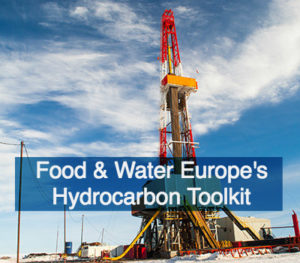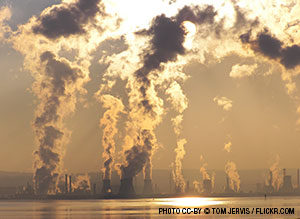New Report Shows How Fossil Fuel Drilling Built the Ineos Empire
Brussels, 12 October 2017 — Just days after the Scottish government extended its moratorium indefinitely on the dangerous drilling technique known as fracking, a new report sheds light on the links between one European billionaire’s chemical and fossil fuels empire and fracking in the United States.
The new issue brief, “Chemical Billionaire’s Bid for Fossil Fuel Empire,” was released by Food & Water Europe, an affiliate of the U.S.-based advocacy group Food & Water Watch. The research provides an in-depth look at the rise of Ineos Corporation, a massive and secretive chemical corporate colossus controlled by secretive billionaire James Ratcliffe.
The Ineos empire, once dubbed “near impenetrable business” by the Financial Times, was put together via debt-fueled takeovers of distressed corporate properties over the course of two decades. It now stands as one of the most powerful petrochemical companies in the world. The company manufactures an array of chemicals and products refined from oil and natural gas; imported U.S. gas derived from fracking is a key feedstock for one of its primary businesses, the manufacture of plastic pellets.
The company’s growth over the past decade relies heavily on fracking in Pennsylvania and Ohio, which has resulted in dramatically lower prices for gas. And the Ineos link to U.S. fracking is represented most dramatically by its fleet of so-called “dragon ships,” which carry gas and shale gas liquids across the Atlantic Ocean for processing at refineries such as the Ineos-owned facility at Grangemouth in Scotland.
And, as the new report shows, Ineos is not merely content with importing these fracking-derived feedstocks via this trans-Atlantic virtual pipeline. The company is the largest holder of shale drilling licenses in the United Kingdom, and is pushing hard to begin fracking. It has made substantial investments in fossil fuel infrastructure, and has lobbied politicians and local governments to approve drilling in order to kick start a European “shale revolution” that is likely to make the company even more profitable.
“Ineos is a dirty energy company that shuns the spotlight, and for good reason: The more you know about their vision for the future, the harder you will fight to stop them,” said Food & Water Watch Executive Director Wenonah Hauter. “This is a company that has amassed giant profits at the expense of the environment and the communities in western Pennsylvania that have been harmed by fracking. And they want to expand the damage done by fracking to Europe. Thankfully, the grassroots opposition to dirty drilling and plastic waste is only growing, and political leaders are starting to listen. The future belongs to clean, renewable energy, not corporate schemes that promote fracking, climate chaos, and that contribute to the massive pollution of the oceans through the production of plastics.”
The growing public opposition to fracking in Northern Ireland and England and the indefinite moratorium in Scotland represents a serious threat to Ineos’s plans to frack Europe. The company’s business model is built around dirty energy extraction and corporate profiteering at the expense of public health, safety and the environment. That backwards-looking vision has proved disastrous for the communities on the frontlines of the disastrous fracking experiment in the United States.
Contact: Andy Gheorghiu, Food & Water Europe, agheorghiu(at)fweurope.org
+49 (0) 5631 50 69 507 (land), +49 (0) 160 20 30 974 (mobile)




